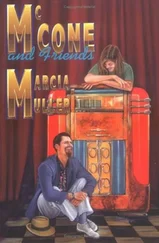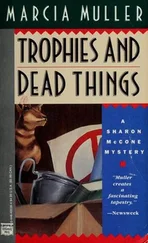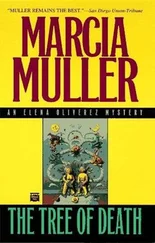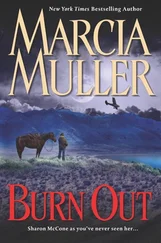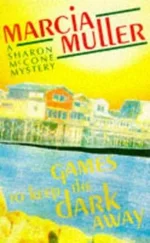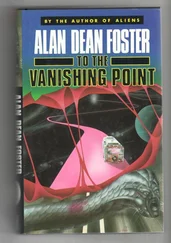“If I know her, she’ll want to see you soonest.”
“If so, I can fit her in on Tuesday afternoon. We’re flying down tomorrow night.”
“What, so soon? You and Hy aren’t taking any more time off?”
“Can’t. He’s due in La Jolla at RKI headquarters on Wednesday. Business is booming-their clients see terrorists behind every tree-and they’re hiring so many people that they need to restructure their training operations.”
And they’ve got a situation coming up. One that will require all their resources, according to Gage. I can’t even ask Hy about it, because he’d be furious at Gage for mentioning it to me. For attempting to dictate the terms of our relationship. If RKI is in trouble, the last thing they need is dissension among the partners.
Rae said, “So marriage isn’t going to change anything for you guys.”
“We don’t expect it to.”
She grinned. “Wait and see.”
“What’s that supposed to mean?”
“Just wait and see.”
AUGUST 16
Jennifer and Mark Aldin lived down the Peninsula in Atherton, an old-money, quietly rich suburb some twenty-five miles south of the city. Red Hawk Lane had a country feel, narrow and overhung with big oak trees; a high tan stucco wall surrounded the Aldin property, and behind it sprawled a matching stucco house with a red tile roof. Sprinklers threw out lazy streams of water onto an improbably green, manicured lawn, the droplets glistening in the early afternoon sun.
A uniformed maid-Latina, with a thick accent-answered the door and showed me to a living room with a beamed ceiling and terra-cotta floors covered with jute area rugs. As she urged me with hand gestures to sit on one of a U-shaped grouping of mission-style sofas in front of a fireplace, she said, “Mrs. Aldin, she will be with you in a short time.”
“ Gracias ,” I replied.
A smile flickered across her lips. “ De nada .”
California: the ultimate melting pot of this already diverse country. Some fluency in Spanish is almost a necessity here-indeed, Latinos are now the fastest-growing ethnic group in our population. For people in my profession, it also helps to understand some Chinese, Japanese, and Tagalog-as well as a smattering of ghetto slang.
As I waited for Jennifer Aldin, I looked around the room. French doors opened onto a patio with a black-bottomed pool and a scattering of teak tables and lounge chairs. The air that filtered through the doors was faintly scented by chlorine and cape jasmine. Because of the walls’ thickness, the living room remained cool in the afternoon’s heat, and the white cushions of the spartan-looking sofa were surprisingly comfortable. I settled back and studied a framed piece of cloth that hung over the mantel-red, orange, black, and gold, woven in a complex, abstract pattern that might have been a replica of a fire in the hearth below. Jennifer Aldin’s work? If so, even to my untutored eye, she had a good deal of talent.
I heard footsteps behind me, turned, and then stood. The woman was as tall as I and slender to the point of being emaciated, clad in narrow-fitting white jeans and a matching tunic, her honey-colored hair hanging dull and stringy to her shoulders. Her eyes were deeply shadowed, her skin dry. The smile she gave me was wan, the nails of the long-fingered hand she extended me bitten down to the quick. Jennifer Aldin, I saw, had once been beautiful, but five months of obsessing over her mother’s disappearance had taken their toll.
“Sharon,” she said, “I’m Jennifer. Thank you for coming.”
In spite of her fragile appearance, Jennifer had a strong handshake, an open face with a scattering of freckles across her small nose, and direct blue eyes. A straightforward woman. I understood why she and Rae had become friends.
After the usual pleasantries-“Happy to try to help you; Rae speaks highly of your friendship.” “Congratulations on your marriage. How was the party?”-we got settled on the sofas, a wide glass-topped table between us. Immediately the maid-Alicia, Jennifer called her-appeared with a tray containing a pitcher of lemonade and two glasses. After she served us and departed, I took out my voice-activated tape recorder and asked Jennifer if she’d mind if I kept a record of our conversation. She didn’t.
“I’ve come to this meeting better prepared than at most of my new-client consultations,” I said. “Rae has briefed me on your situation, and this morning I accessed the news reports of your mother’s disappearance. What we need to do now is discuss what you expect of me and my agency, as well as what we can reasonably hope to provide. I take it Rae’s told you she considers the investigation a long shot?”
Jennifer nodded. “She did say that. And I’ve reviewed every piece of information I could find about… that time, so I know how little there is to go on. But… Sharon, do you know what it’s like to lose a parent?”
“Yes, I do. My father-adoptive father, actually-died of a heart attack a couple of years ago.”
“And that was painful, I’m sure; I lost my own dad to cancer only a few months ago. But my mother… What would it have been like if your father had simply disappeared, if you never knew what had happened to him?”
“I can’t imagine.”
“Let me try to describe the experience. You’re ten years old. Your mother comes to your bedroom one night and together you read a chapter of the current book-in this case it was The Wind in the Willows -as she’s done nearly every night for as long as you can remember. She kisses you, reminds you she’s going to the coast to paint in the morning, and she’ll be back late, so you’re to mind your father and look out for Terry, your little sister. The next night she is late, but you go to sleep, sure you’ll see her in the morning. But in the morning she’s still not there. You go off to school, expecting she’ll be there when you return that afternoon.” Jennifer paused, took a deep breath. Her face had gone pale, and she’d laced her long fingers together and thrust her hands between her knees. After a moment she went on.
“When the school bus drops you and Terry off that afternoon, there’s a police car in front of the house. Lots of people are there: your dad, who’s never home that early; your mom’s best friend; the next-door neighbor lady; your Aunt Anna; two men in uniform. You keep asking what’s happened, but they won’t tell you anything, and Aunt Anna takes you and Terry to the kitchen for Coke and cookies. Aunt Anna’s upset, you can tell because she won’t look at you, and when you ask if something’s happened to Mom, all she says is, ‘She’ll be back soon.’ But you know she’s lying, and your throat seizes up so there’s no way you can eat a bite of those cookies or take a sip of the Coke.”
Jennifer’s voice had slipped into a higher pitch, and her eyes were focused rigidly on the cleanly swept hearth. Going back in time, reliving the incident. I felt a prickling of concern for her, but didn’t interrupt.
“For two days it goes on like that,” she continued. “Dad stays at home, but he’s not paying much attention to you. Aunt Anna and Aunt Sally-Mom’s best friend-are there most of the time, too. You and Terry are confined to the house, they won’t even let you go to school. Terry’s scared-she’s only six-and she’s afraid to ask questions, so you do. ‘What’s happened to Mom?’ you say. ‘She’s away painting,’ they tell you. ‘She’ll be back soon.’ But you know she’s not away painting; in all the time she’s done that, she’s never been gone this long. And the postcard hasn’t come. When she goes someplace to paint, she always sends a postcard addressed to herself-no message, just a souvenir for her collection. Besides, why were the police at the house that first day? Why do they keep coming back to talk with Dad? And why hasn’t he gone to work?”
Читать дальше






